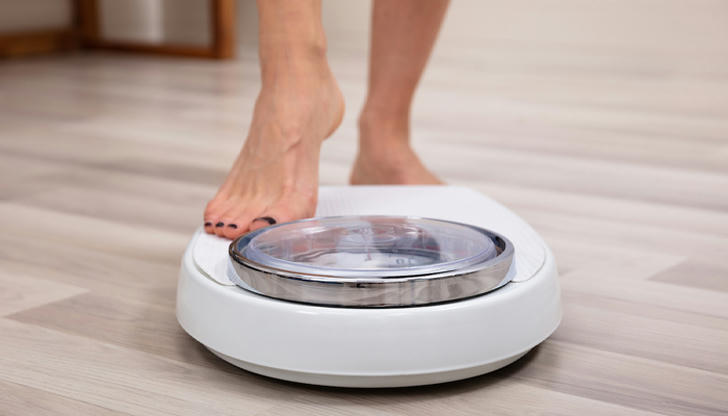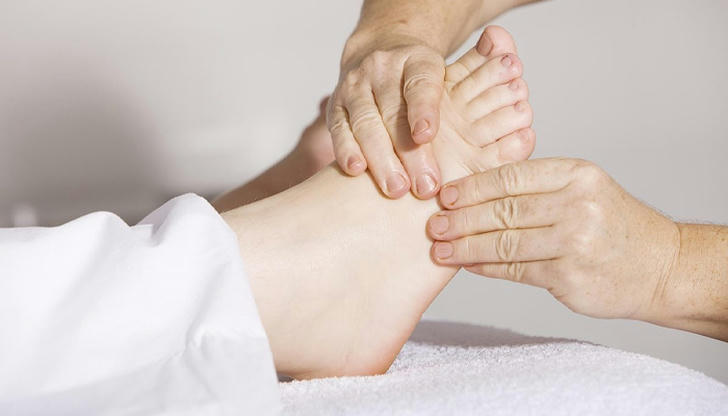Doctor’s Warning, These Are The 6 Biggest Health Risks of Sitting All Day
Advertisement
We've all been there – sinking into that cozy chair or office desk, only to realize that hours have slipped by in a blur. But did you know that this seemingly harmless habit of sitting all day could seriously jeopardize your health?
According to the World Health Organization (WHO), physical inactivity is the fourth leading risk factor for global mortality. Human bodies are built for standing. It's how our hearts and circulation work best. When you're up and about, your digestion works smoothly too. But if you're stuck in bed for a while, you might notice some tummy troubles.

If your daily routine involves a lot of sitting, you're at a higher risk of gaining those unwanted pounds, dealing with type 2 diabetes or heart issues, and even battling the blues with depression and anxiety. Keep reading to discover these alarming health risks when you sitting all day long. Your well-being is on the line!
1. Weight gain

A study published in 2012 in the "Texas Heart Institute Journal" highlighted a concerning connection between obesity and a sedentary lifestyle. The study authors pointed out, "Data from the Centers for Disease Control and Prevention (CDC) shows that in areas of the United States where obesity rates exceed 30%, the proportion of adults who report no leisure-time physical activity is also greater than 30%." This correlation underscores one of the significant hazards of prolonged sitting: the risk of obesity.
The human body is designed for movement, and when we spend extended hours sitting, our metabolism tends to slow down. This sluggish metabolism can lead to weight gain and ultimately contribute to obesity. Additionally, sitting for prolonged periods may encourage unhealthy snacking habits and a higher calorie intake, further exacerbating the issue.
Obesity is linked to a myriad of health problems, including diabetes, heart disease, joint pain, and a reduced quality of life. Taking short breaks to stand, stretch, and move around can work wonders in preventing or alleviating back pain.
2. Back pain

Your back is like the support structure of a building, consisting of bones, muscles, and discs. When you sit for long hours, especially with poor posture, your back takes a hit.
Imagine your spine as a stack of building blocks. When you sit for extended periods, the discs between those blocks can get squished unevenly. It's a bit like pressing down on one end of a sponge – it compresses and bulges out on the other side. This uneven pressure on your spine can lead to discomfort, stiffness, and eventually, back pain.
Additionally, sitting for prolonged periods can weaken the muscles in your back. When they're not being used, they lose their strength and ability to support your spine properly. Think of it as your back muscles taking a nap, and when they wake up, they're groggy and not as effective.
3. Heart disease

You can think of the heart as the engine of your body, responsible for pumping blood to provide oxygen and nutrients to the entire body. However, when you sit for extended periods, this engine can encounter problems.
Studies have found that men who watch TV for more than 23 hours a week have a 64% higher risk of dying from cardiovascular disease compared to those who watch only 11 hours a week.
In fact, people who spend long hours sitting and being inactive may face a risk of heart disease or stroke that's 147% higher. This is because when you're sitting, your heart doesn't have to work too hard, blood flow slows down, and your blood vessels become less active. Just like your engine can develop issues when it's idle, your heart can be affected by a lack of exercise. Therefore, staying active keeps your heart healthy.
4. Diabetes

Research has shown that even lying in bed for five days can lead to increased insulin resistance in your body. Think of insulin resistance as a rusty lock; it doesn't work as smoothly as it should, causing your blood sugar levels to rise above healthy levels.
In fact, studies have found that people who spend a lot of time sitting have a 112% increased risk of developing diabetes. The reason behind this is that when you're inactive for long periods, your muscles aren't working as much, and they need less glucose for energy. This excess glucose in your bloodstream can lead to insulin resistance over time, increasing the risk of diabetes.
5. Anxiety and depression

Sitting for too long doesn't just affect your physical health; it can also have a significant impact on your mental well-being.
Dr. Chacra, a renowned psychiatrist, has shed light on the fact that individuals who lead sedentary lives are particularly susceptible to experiencing elevated levels of stress, anxiety, and depression. It's as if sitting for prolonged periods somehow gives these negative emotions a chance to creep in.
Here's why this happens: when you're inactive for extended periods, your body produces fewer mood-enhancing chemicals like endorphins and serotonin. These are the natural "feel-good" hormones that help regulate your mood and reduce stress. Without regular physical activity, the delicate balance of these chemicals gets disrupted, potentially leading to increased feelings of anxiety and depression.
6. Impaired circulation

When you sit for extended periods, especially with your knees bent at a right angle, it makes it challenging for your blood to circulate as effectively as it should. You see, your muscles play a crucial role in aiding blood flow throughout your body. When you're sitting for hours on end, these muscles remain inactive, causing blood to pool and flow sluggishly.
Over time, this reduced circulation can lead to several health problems. It increases the risk of blood clots, especially in your legs, known as deep vein thrombosis (DVT). These blood clots can be extremely dangerous if they travel to other parts of your body, such as your lungs or brain.
Poor circulation can also lead to swollen legs and ankles, which can be not only uncomfortable but also a sign of underlying health issues.
How can you keep yourself healthy from the dangers of sitting?

Here are some tips to help you combat the adverse effects of sitting:



